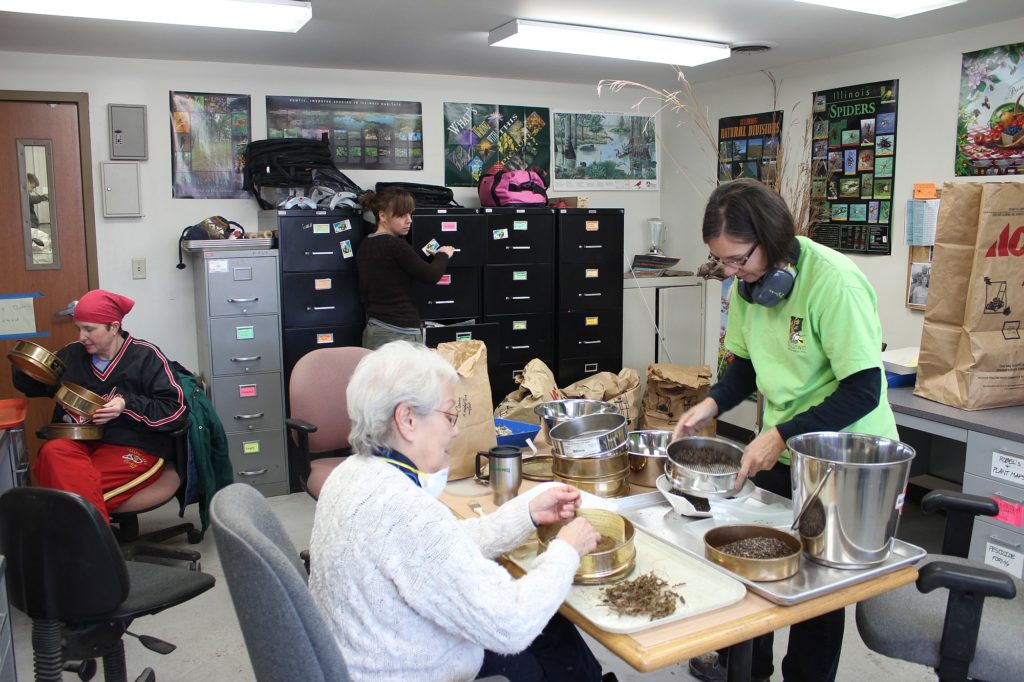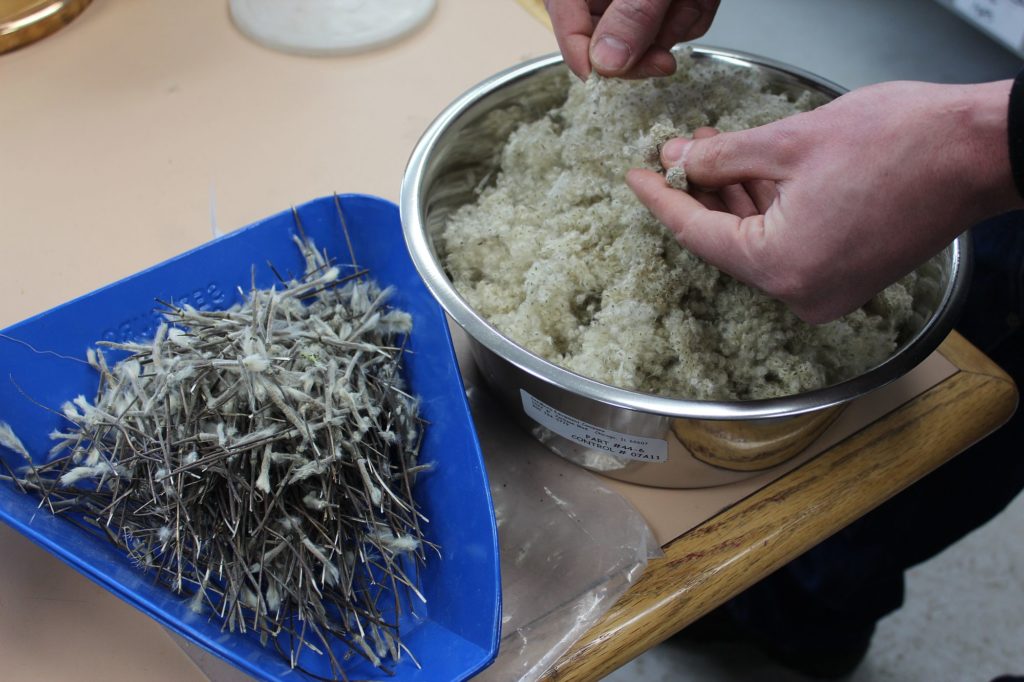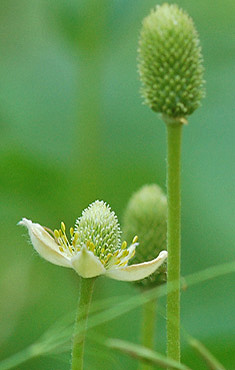Volunteer restoration doesn’t get any cushier than this – soothing one’s hands in downy thimbleweed fluff while undergoing mint aroma therapy.

Usually, cleaning seed at Midewin is a loud, dusty job, with volunteers manning several different kinds of seed processing machines. Ear plugs, dust masks and protective eyewear are compulsory. But a near record number of volunteers has led to all the machine stations quickly filling up. That leaves several of us relegated to hand cleaning work in an adjoining room.

Not all native seed can be cleaned or completely cleaned by machines. And by cleaned is meant separating the seed from the chaff. My job today is to strip the cotton ball-sized clusters of fluff-covered seeds from the woody stems of thimbleweed. The feel of the fluff is like wool. Soft, with perhaps a hint of oil that that makes the work seem more like a hand massage.
There is no scent to thimbleweed fluff, but that is more than made up for by a fellow volunteer working seed-chaff mixes of mint through several different screens. This releases not only the seed, but also an intoxicating aroma that soothes the senses, making me think less about the freezing temperatures outside and more about the time when thimbleweed reclaims its rightful place among the wildflowers of Midewin.

According to Midewin Horticulturist Eric Ulaszek there isn’t much thimbleweed – a member of the buttercup family – currently growing at Midewin. He found the plants I’m handling today growing wild along Route 66 in Livingston County. So, this seed is likely bound for Midewin’s River Road seed beds, where more than 150 different species of native plants already are under cultivation. In time, the white flowers centered around elongated seed heads that give thimbleweed its common name, once again will grace the dry and mesic prairies of Midewin in late spring and summer.